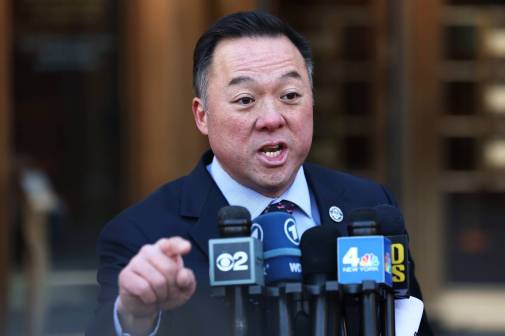Private agents are hunting for misregistered vehicles in Connecticut

Longstanding compliance programs run by local governments in Connecticut to ensure proper vehicle registration have recently raised the hackles of privacy experts who say some of their practices may pose unnecessary risks to personal data and betray the spirit of the state’s consumer privacy protections.
The motor vehicle compliance programs aim to recoup revenue lost when drivers register their vehicles in the wrong jurisdictions to skirt local taxes, or overshoot the grace period after a move. Municipalities contract private firms to investigate vehicles and their owners to determine whether the residency of the vehicle’s owner matches the vehicle’s registration. Using dash-mounted automatic license plate readers, the firms collect plate and geolocation data, and cross reference it with personal information databases to verify ownership.
These companies — which investigate thousands of vehicles and their owners to earn handsome cuts of the recovered revenue — collect, process and store massive amounts data with little oversight. The detailed investigations often span months. And one privacy expert told StateScoop the investigations can produce a concerning “pattern of life” on an individual, filled with personal details that, if compromised in a data breach, poses a level of risk outweighing the purported benefits of such programs.
8,000 investigations in Danbury
Danbury, Connecticut, runs a motor vehicle compliance program through its assessor’s office to recover tax dollars lost to out of state and town vehicle registrations. It launched the program in November 2022 by contracting Capital Tax Recovery, a private investigative firm.
Donna Murphy, the city’s assessor, told StateScoop that while she couldn’t speak to the exact practices that Capital Tax Recovery uses to determine the compliance registration of vehicles, the city’s website states the firm is “scanning license plates throughout the City to determine if all residents do indeed have their vehicles registered with the State of CT and have Danbury as their tax town.”
StateScoop reached out to Capital Tax Recovery for an interview and did not receive a response.
The news outlet Connecticut Inside Investigator last year published a report about Municipal Tax Services, another private investigative firm contracted by Connecticut cities to recoup vehicle tax dollars. The publication reported that agents of the firm drive every street of a municipality, multiple times, recording each plate with a dashboard-camera system called SecureWatch24, which records time, date and GPS locations of each vehicle.
When cars are parked down long driveways, firm agents use binoculars to collect license plate data and record it along with the time, date and location of the vehicle, Inside Investigator’s report said.
Data collected by investigators is compared against cities’ motor vehicle grand lists or taxable property records. Murphy told StateScoop that there were 72,069 vehicles on Danbury’s 2022 grand list. If a vehicle is not on the grand list already — meaning it’s not registered in Danbury — but its license plate is scanned in the same place within Danbury more than twice, it’s placed under investigation by the firm, she said.
According to Capital Tax Recovery’s website, the investigative window for determining vehicle ownership and owner residency is about 90 days. Murphy told StateScoop that as of mid-November there were 8,345 vehicles under investigation by the Capital Tax Recovery in the City of Danbury alone.
A ‘pattern of life’
Connecticut is one of 12 states with a comprehensive, consumer data privacy law on the books. The state’s Data Privacy Act went into effect in July, and while it provides a list of consumer rights regarding data — such as the right to know what data a company collects, the right to correct that data, the right to delete it and the right to opt of out collection entirely — there are carve outs in the law for the data practices of government agencies and their vendors.
Elizabeth Benton, spokesperson for Connecticut’s Office of the Attorney General, told StateScoop there are exemptions for non-consumer data collection, including government functions. She said license plates are exempted since they’re publicly displayed. Tom Aldrich, the vice president of private clients at 360 Privacy, a digital risk firm, said that while license plate information is publicly available, he’s concerned by the combination of vehicle and owner data paired with geolocation data.
“What that firm is doing is they are legitimately developing a ‘pattern of life’ on you,” Aldrich said. “All of the data points that are collected are essentially telling the government of the state of Connecticut, ‘This is who this person is, this is what they drive and this is where they go over the course of a 90-day period.’ I don’t know about you, but in any 90 days out of the year, if I’m driving to certain places, back and forth, over a 90-day period, you have a pretty good idea of where I like to go, when I like to go there and who I like to go there with.”
Aldrich said these programs also stand in contrast to the goal of Connecticut’s Data Privacy Act. He said that while the firms may be exempt because they’re doing work for the government, the database of consumer data they generate would otherwise fall within the scope of the privacy law.
“If the whole idea [of the law] is to create an environment that is transparent in nature and allows people to make conscious decisions about what information of theirs is collected, what’s correct and then their right to opt out, that’s what’s missing,” Aldrich said.
Data for profit
Murphy, the Danbury assessor, told StateScoop that the contract the city inked last year with Capital Tax Recovery was for one year and it recently renewed it for an additional year. She said the firm is paid a 40% cut of the additional tax revenue brought in from their investigations, meaning there are no out-of-pocket expenses for the city to run the program.
On Municipal Tax Services’ website, the firm claims it’s assisted 10 municipalities with the assessment of more than 40,000 vehicles and $20 million in tax revenue.
Murphy said Danbury brought in $137,000 this year after paying Capital Tax Recovery.
“If you’re paying your taxes and your vehicles are registered in the city, because you live in the city, you have nothing to worry about,” Murphy said. “This is getting people who don’t have their vehicles registered to pay their fair share of taxes.”
But Aldrich said his concerns are about the overreaching power of government, not what’s fair.
“If that person were to look out their window at the end of a very long driveway and see somebody parked with binoculars looking in their direction, I would [be] hard pressed [to believe] that person would tell me, ‘Oh, there’s no need for concern there,'” Aldrich said. “These companies seem to have carte blanche to collect any data they really want for the sake of government work.”






